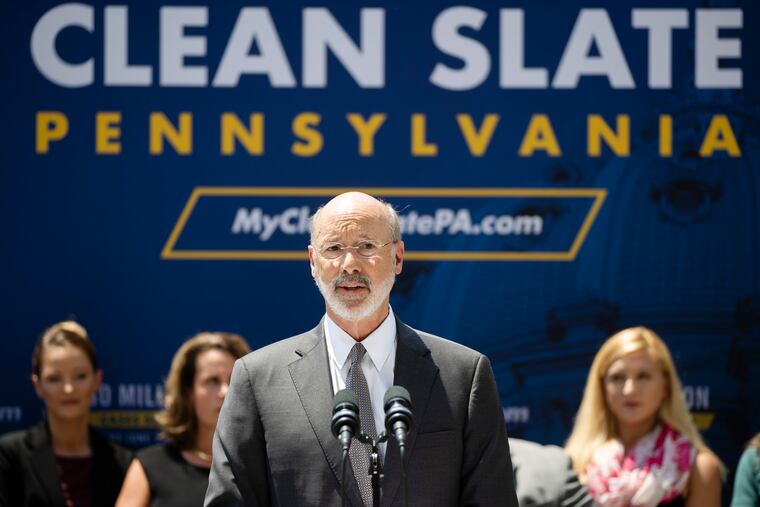As COVID-19 continues, expanding Clean Slate legislation will help people in need | Opinion
An individual’s financial status should not be an impediment to a brighter, criminal record-free future.

Two years ago, “Clean Slate” legislation passed in Pennsylvania with overwhelming bipartisan support, enabling automated sealing of certain criminal records. Automated sealing started last June. In only a year, nearly 35 million cases and 47.3 million offenses have been sealed from public view — opening the door to employment, educational, and professional opportunities for more than 1.15 million Pennsylvanians. This relief comes at a critical time as Pennsylvania looks toward recovering from COVID-19 in the coming months and years.
Yet, it is important to note those who have not been able to benefit from a clean slate: an estimated 50% of those with otherwise eligible misdemeanor convictions statewide, and 75% of those eligible in Philadelphia alone were eliminated from automated sealing due to outstanding court debts. The requirement to pay court fines and fees before having a conviction record sealed has hindered thousands of Pennsylvanians from finding meaningful employment and housing and limited countless other opportunities. The requirement also seems to have disproportionately disqualified Black Pennsylvanians from having their misdemeanors sealed.
That’s why we need House Bill 440. Passed by the House unanimously in December 2019, the bill fine-tunes the Clean Slate law to eliminate the requirement that court debt be paid. Only those owing restitution — compensation to crime victims — are disqualified from a sealed record.
An individual’s financial status should not be an impediment to a brighter, criminal record-free future. Yet the 70% of Philadelphians who owe court debt are unemployed and cannot afford to pay the median balance owed of $275 to Philadelphia’s Municipal Court and $551 for Common Pleas have been unable to access record sealing.
Take Carole, a 57-year-old Philadelphia resident and client of Community Legal Services of Philadelphia. Carole has convictions for drug possession and retail theft from over two decades ago — a time when she was dealing with the loss of parents and a bad divorce. Although she has since completed rehab, and is sober and law-abiding, her $225 in unpaid fines are holding her back from having her record sealed.
She is now a homeowner, the adoptive mother of her niece and two nephews, and a productive member of society, yet her record has caused her to be turned down for employment and causes embarrassment when she needs clearances for church and school volunteer positions.
Two decades later, her record, which is eligible for expungement under Clean Slate, is still hanging over her head — simply due to her financial inability to pay the courts.
Carole’s story isn’t unique. This is the case for many thousands of individuals who have remained crime-free and would otherwise be eligible for record sealing under Pennsylvania’s Clean Slate law, yet owe nominal sums that stand in the way of a more productive future for them and their family.
While we should certainly celebrate that over a million people have had Clean Slate applied to their record, there’s still work to be done. Final passage of the fines and fees bill in the Senate would be a game changer for struggling Pennsylvanians, and its enactment is essential for the full promise of Clean Slate to be realized.
Clean Slate means a second chance for Pennsylvanians and removing barriers to success. We must ensure that is available to not only those with financial means but to all who need a fair chance at moving forward.
Sharon Dietrich is the managing attorney for Community Legal Services of Philadelphia.